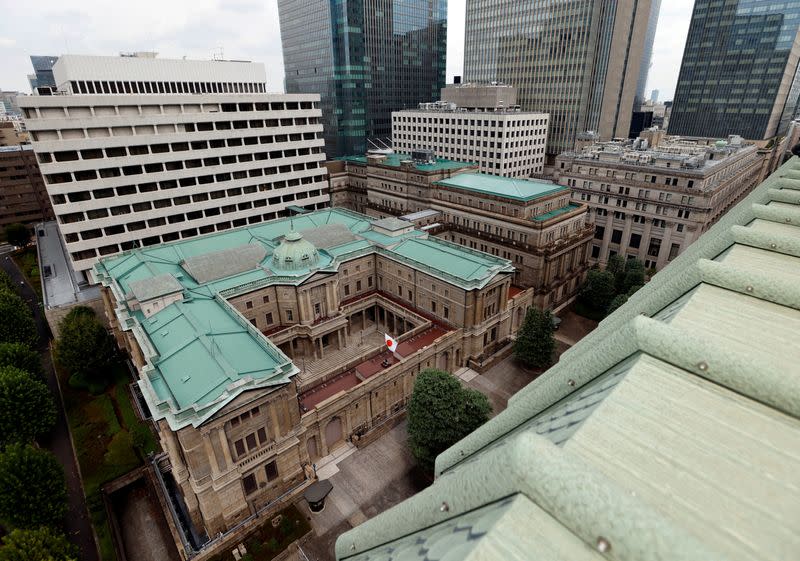BOJ risks being behind the curve on inflation: ex-central bank economist

By Leika Kihara
TOKYO (Reuters) - The Bank of Japan may be underestimating the risk of being too late in addressing mounting inflationary pressures from rising service prices and wages, the central bank's former top economist said.
The bank on Tuesday raised its inflation forecasts to well above its 2% target for this year and next but said the revisions were largely due to transitory factors, such as more companies passing on higher raw material costs through hikes in goods prices.
The BOJ projected inflation would recede below 2% in 2025, when cost-push factors run their course and begin to be replaced more fully by upward pressure from higher wages.
Seisaku Kameda, who was involved in drafting the BOJ's forecasts as its top economist from 2020 to 2022, told Reuters the central bank may be overlooking a recent steady rise in service prices by focussing too much on cost-push inflation.
"While cost-push inflation remains the key driver of price rises now, we're also seeing service prices rise steadily. Wages are also likely to increase significantly next year," Kameda said in an interview on Wednesday, a day after the bank loosened the 1% cap on its target for long-term bond yields.
"Even as cost-push pressures ease, the rise in service prices and wages could broaden and persist," he said. "I don't think the BOJ is focussing on such price pressures as much as it should, putting it at risk of being behind the curve."
Kameda said he expects the BOJ to take further steps to phase out its bond yield control policy, before ending negative short-term rates as early as April.
"The sooner the BOJ normalises policy, the better, as Japan shifts from a deflation-ridden economy to a country that's finally seeing some inflation," said Kameda, an economist at a think tank affiliated with Japan's Sompo Holdings insurance group.
With inflation exceeding the BOJ's 2% inflation target for more than a year, many analysts expect the bank to end its bond yield control and negative rate policy next year.
BOJ Governor Kazuo Ueda has stressed the need to keep policy ultra-loose until the recent cost-driven inflation turns into price rises driven by robust domestic demand and wage growth.
(Reporting by Leika Kihara; Editing by William Mallard)

 Yahoo Finance
Yahoo Finance 